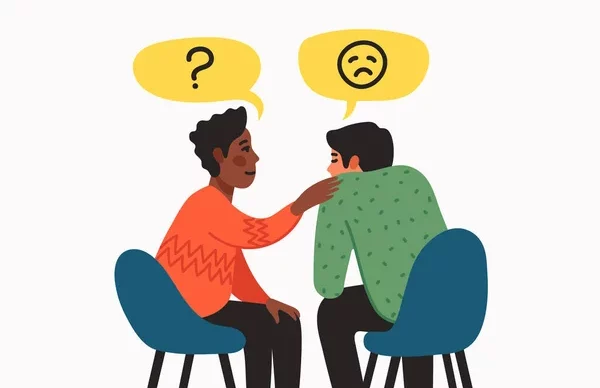Responding to people’s news – health
Short fixed expressions
How should you respond when someone tells you news about their health or about someone else they know? In this entry, we look at short but empathetic responses that will help you avoid embarrassment of not knowing what to say.
Our students often talk about the “catch-ball” difficulty of handling English conversation. Like in a game of tennis, they want to return the serve quickly, smoothly and efficiently. English has plenty of short, fixed expressions to allow you to achieve your goals. You should definitely try to learn these short responses and practise using them with other English speakers. As a result, your English conversation ability will sound very natural and spontaneous, in response to whatever question or comment comes your way.
Let’s look at 4 expressions, with useful follow-up comments or questions.
Then we will offer phrases to express the idea of get well soon.
Scenario 1 – sudden hospitalisation
“I’m so sorry to hear that.”

You receive news that someone is in hospital (not a planned admission). To be clear, in English to be in hospital suggests that it is at the very least not a minor health issue. This is definitely not the case of seeing a doctor to get a repeat prescription, or the like!
A: My aunt’s in hospital after having a fall the other day.
B: Oh I’m so sorry to hear that.
How’s she doing? / How serious is it?
Commentary:
- An exclamatory “Oh!” is often heard at the start of the expression, indicating shock at the news.
- Notice the options for a follow-up question.
It is common when hearing bad news to ask for more details, out of concern. - How + adjective is a very useful question formulation. It is enquiring about the degree of the problem or situation.
- In response to a how + adjective-type question, you will often hear an adverb such as:
very [serious], quite [serious], not very [serious], not [serious] at all.
Scenario 2 – minor injury
“Oh dear!”
A: My son banged his head against the door. He’s ok, but has a nasty bruise.
B: Oh dear.
These things happen though, don’t they.
Commentary:
- The response is less intense and sympathetic, as the listener has judged the situation not to be too serious.
- There is no follow-up question, as the listener understands that toddlers sometimes have minor accidents. Nonetheless, to end leave the response with saying anything else feels awkward.
- These things happen. This is a useful non-judgmental expression to express understanding that accidents do happen and are not anyone’s fault.
Scenario 3 – minor illness
“That’s a shame.”
A: We couldn’t go to the party because we all caught colds.
B: Oh that’s a shame.
I’m sure they were sorry you weren’t there.
Commentary:
- Catching a cold is generally considered not to be serious, so “that’s a shame” is sufficient. Note therefore that this expression is used for less serious issues.
- “I’m sure they were sorry” – sorry in this context means disappointed. The hosts of the party were probably disappointed that you couldn’t join.
Scenario 4 – death
“I’m so very sorry for your loss.”
A: My father passed away the other day.
B: Oh no! That’s so sad.
I’m so very sorry for your loss.
If there’s anything I can do for you, don’t be afraid to ask.
I’m here for you if you need to talk.
Commentary:
- Obviously with a language barrier or not, this is one of the most difficult conversations to have.
- Such a response will often start will expressions of surprise or disbelief.
- Only then should you use a fixed expression such as “I’m sorry for your loss”, otherwise it will sound cold and robotic. It can be humanised with emphasisers such as so and very.
Get well soon
How to express this wish in different ways?
- I hope s/he makes a speedy recovery.
When a serious illness has some likelihood of being cured
- hope s/he feels better soon.
When a minor illness is on-going
- I’m glad s/he’s over the worst of it.
When the most serious phase of an illness has been successfully treated

Interested in learning more about British English?
As a school of English in London, we specialise in private lessons
– both face-to-face and online.
We offer a free consultation to all students. Please click here to book your free consultation.
If you are looking for tailor-made private English lesson with flexibility and high quality native English teacher, PS English can help you.
We look forward to hearing from you!

